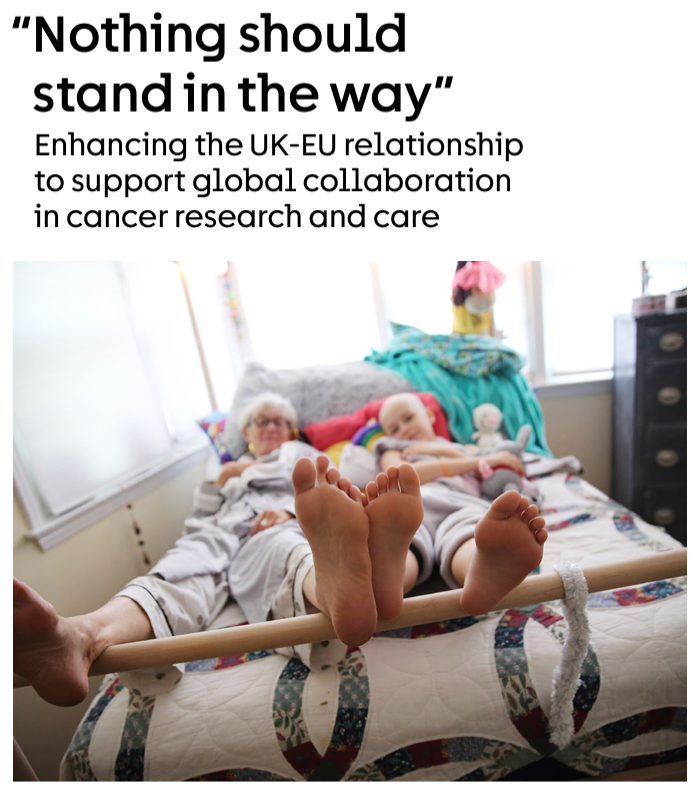Miguel Bronchud, Co-Founder and Advisory Board at Regenerative Medicine Solutions, shared a post on LinkedIn:
“There is unfortunately no “cancerexit”- except for that based on excellent basic & clinical research, comprehensive openly available & affordable programs for preventative, early detection and competent multi disciplinary clinical treatments and (unavoidably)… good fortune.
‘The UK Government should negotiate better regulations for clinical trials, drug imports, and employing European scientists to lessen the blow to science caused by Britain’s exit from the EU in 2020’, says a March, 2025 report entitled “Nothing should stand in the way” by the charity Cancer Research UK.
Some 80% of British researchers say that since Brexit it has been difficult to collaborate closely and efficiently with EU based cancer researchers. According to Laura Williams (Europe & Global Affairs Manager at Cancer Research UK):
“Over the last few years, I’ve been asking how it’s going now the UK is outside the EU.
Does it have any impact on our research community’s work or plans? “ Yes, is the most frequent answer.
“Every time, I get similar stories- Laura continues – clinical trials delayed; drugs stuck in transit; samples destroyed; difficulties recruiting to permanent posts; waits for innovative bits of kit; uncertainty about project funding; the enforced use of expensive couriers; concerns about data-sharing; and frustration at fewer chances to offer shorter-term opportunities to EU-based scientists that push the barriers of research.”
Over and over it’s been the same: more delays; higher costs.
Over 40% of Cancer Research UK-supported clinical trials collaborate with countries inside the EU single market. For example, they recruit patients in participating European countries. Almost all (90%) paediatric trials carried out in clinical trials units UK funds are international.
Cancer Research UK set out 4 priority recommendations for effective collaboration between the UK and EU.
- Avoid duplication in clinical trial set-up to reduce red tape and costs: a UK-EU ‘mutual recognition agreement’ to include medicines manufacturing site inspections, batch release and testing (and the processes around these).
- The UK Government should support global research programmes: ensure the UK continues to associate with Horizon Europe & its successor, as a third country. Join EU4Health and health-related workstreams of wider EU funding programmes. And join future global research programmes, with clear, positive messages about UK support for the global research environment.
- Reduce trade friction: support the logistics industry to meet cross-border regulatory requirements more effectively, ensuring scientists can access items needed for research in a timely manner.
- Ensure data flows: grant the UK and EU data adequacy in mutual renewal decisions due this year. The UK Government should ensure the UK’s data protection environment doesn’t put at risk a renewal in 2025 of the EU’s decision in favour of UK data adequacy.”

More posts featuring Miguel Bronchud.


